Mufti Muhammad Taqi Usmani’s foreword to: Al-ʿInāyah fī Taḥqīq al-Aḥādīth al-Garībah fī al-Hidāyah and an overview of the book
بسم الله الرحمن الرحیم
Yesterday, my dear friend Shaykh Ibrahim Makki of Ismaeel Books informed me that the two-volume 1632-page book on the ḥadīths of Hidāyah has arrived and is available to purchase from the Ismaeel Books website.
The collection features an in-depth study on the Ḥadīths of the famous ḥanafī text, Hidāyah, which were not found by Ḥāfiẓ Zaylaʿī (d. 762/1360) and Ḥāfiz Ibn Ḥajar (d. 852/1149). As the book is in Arabic, I thought it would be useful for our English readers to provide an overview of the book by sharing a translation of the foreword to the book by our respected Shaykh al-Islam Mufti Muhammad Taqi Usmani (b. 1362/1943) which captures the key features of the book, along with excerpts from a travelogue which provides some background to the book and the research objectives. A potential work for future is an abridgement of this collection focusing on the identified ḥadīths in a succinct manner and publishing it together with Munyat al-Almaʿī. May Allah Almighty accept the publication and forgive the shortcomings and errors therein.
Yusuf Shabbir
22 Rajab 1444 / 13 February 2023
Foreword by Mufti Muhammad Taqi Usmani
In the name of Allah, The Compassionate, The Merciful. We praise Him and send blessings upon His Noble Messenger. To proceed:
The book Hidayah by Abu Bakr al-Margīnānī – may Allah Almighty have mercy on him – is one of the books of Ḥanafī jurisprudence upon which Ḥanafī jurists of the past and present rely, and it was chosen to be a book of study in seminaries and universities. An objection is sometimes made on him that he sometimes takes evidence from ḥadīths or narrations that are not found in the common ḥadīth books. Leading scholars like Imam Zaylaʿī, Ḥāfiẓ Ibn Ḥajar, Ḥāfiẓ Badr al-Dīn al-ʿAynī, Ibn al-Humām and others have identified and extracted its ḥadīths, and have mentioned in many places that they did not locate the ḥadīths and narrations which the author of Hidāyah referred to.
Our young brother, the eminent, Shaykh Yusuf Shabbir – may Allah Almighty protect him – has identified and extracted those ḥadīths and narrations which Ḥāfiẓ Zaylaʿī and Ḥāfiẓ Ibn Ḥajar, may Allah Almighty have mercy on them, did not locate. He has thus mentioned in this book the ḥadīths found by ʿAynī, Ibn al-Humām and Qāsim ibn Quṭlūbugā, may Allah The Perfect have mercy upon them, along with analysing their chains and texts.
However, the author deserves credit for the fact that he has, in addition to these ḥadīths, located sixty-four[1] ḥadīths and narrations that were not found by Jamāl al-Dīn al-Zaylaʿī, Ḥāfiẓ Ibn Ḥajar, ʿAynī, Ibn al-Humām, or his student Qāsim ibn Quṭlūbugā, despite what is known of their extensive knowledge. This talented young man located these ḥadīths via a thorough search of the books of ḥadīths and narrations, and thereafter undertook comprehensive research on their chains. He also cites the other earlier jurists who mentioned and used as evidence the ḥadīths and narrations al-Marghinani used, which proves that the ḥadīths were known to the scholars before the author of Hidāyah.
By my life, it is indeed a commendable effort. Rarely would contemporary and earlier scholars pluck up the courage to undertake a task similar to this. It is a valuable addition to the wealth of jurisprudence and ḥadīth that exists. May Allah Almighty reward him with the best reward.
In addition, he has collated many beneficial points in the introduction and during the discussion on the ḥadīths, which students of the ḥadīth science like me can benefit from.
I pray to Allah Almighty to accept this effort from him, and benefit the seekers of knowledge, and Allah Almighty is the granter of success.
Muhammad Taqi Usmani
15 Jumādā al-Ūlā 1441 H, 11 January 2020 CE
On the way from Leicester to Birmingham, UK
Excerpt from West Africa travelogue
The following is an extract taken from the travelogue entitled: Visit to Niger, Sierra Leone, The Gambia and Senegal (March 2022)
“The journey to PhD
In 2005, al-Ḥamdulillāh I graduated from Darul Uloom Bury and thereafter studied A Levels at Blackburn College. In 2010, I graduated from the University of Manchester’s Law School with an LLB (Hons). During this period, I also completed a Post Graduate Diploma in Islamic Banking and Insurance. In 2014, I completed my Masters in Human Resource Management from Robert Gordon University in Aberdeen and also acquired chartered membership of the CIPD (Chartered Institute of Personnel and Development).
Since 2015, Allah Almighty granted me the tawfīq to be involved in the writing of various books, articles and research papers in Arabic, Urdu and English. Some colleagues suggested as a result that I should consider a PhD. My respected father also suggested this as did my teacher Mufti Muḥammad Ṭāhir a decade ago. In June 2018, whilst travelling in the car in the Balkans with our respected Shaykh al-Islam Mufti Muhammad Taqi Usmani, I sought his advice in this regard and presented him with two subject areas for a potential PhD: One was in the field of international law and the books of Imām Muḥammad ibn al-Ḥasan al-Shaybānī (d. 189/805), and the other was on the influence of Ḥadīth on the scholars of Deoband. Mufti Ṣāḥib advised me to consider the former not least due to my legal background and also the importance of conveying the contribution of Imām Muḥammad to international law. Subsequently in 2020, I consulted ʿAllāmah Khālid Maḥmūd regarding this and I asked him regarding his PhD. He advised me to consider a PhD on the issue of the inheritance of grandchildren. However, Allah Almighty had planned otherwise.
The research on the Ḥadīths of Hidāyah
In August or September 2018, I received a question via our website from brother Shawkat Ali of Pakistan regarding the Ḥadīths of Ḥidayah and its author. At the time, I authored a 36-page answer in Urdu addressing the following questions of his:
- What are the ḥadīth credentials of the author of the classic ḥanafī manual Hidāyah, ʿAllāmah Marghīnānī (d. 593/1197)? Was he a ḥadīth expert?
- What is the status of the ḥadīths in Hidāyah which Ḥāfiẓ Zaylaʿī (d. 762/1360) and Ḥāfiz Ibn Ḥajar (d. 852/1149) were unable to locate?
- What is the ruling on narrating ḥadīths mentioned in books of jurisprudence that are not found in the ḥadīth books?
This answer is available on the following link: https://islamicportal.co.uk/queries-regarding-hadiths-of-hidayah/.
A year later in September 2019, I was fortunate to have organised a trip to Greece and Hungary with our respected Mufti Muhammad Taqi Usmani. During the trip, I presented a draft of my Arabic book Tadhkirat al-Aʿlām al-Sūd featuring the profiles of 101 male and female black companions and scholars and requested Mufti Ṣāḥib to write a foreword, which he kindly did. Mufti Ṣāḥib also advised me during the journey that I should consider writing a commentary on Kitāb al-Amwāl of Imām Abū ʿUbayd (d. 224/838) and gave me some tips in this regard.
A few weeks later in October 2019, Allah Almighty placed a thought in my mind regarding the 36-page answer I had written a year ago. As I had only examined some Ḥadīths of Ḥidāyah which Ḥāfiẓ Zaylaʿī and Ḥāfiz Ibn Ḥajar were unable to locate, there was a need to undertake a comprehensive review and study of all such Ḥadīths in Hidāyah. I thus began, in the name of Allah, and for the next 8-10 weeks spent 13-15 hours daily on this task. By the end of December, the first draft was completed, I travelled to Saudi Arabia and India thereafter. Subsequently, in January 2020, Mufti Muhammad Taqi Usmani visited the UK and I presented the draft to him. Mufti Ṣāḥib was very pleased with the draft, commended me and also wrote a foreword.
Whilst not written with the intention of a PhD, a thought crossed my mind that this work could be suitable for a PhD. However, a few weeks later, Covid-19 began and I became busy.
Thereafter in August 2020, I visited Istanbul and met with several professors from various universities and discussed this project and the possibility of enrolling on to a PhD programme. I submitted an application at the Fatih Sultan Mehmet Vakıf University after discussions with the Dean of the Faculty of Islamic Sciences. However, due to time constraints, it later transpired that admission for the September 2020 round will not be possible. I decided not to pursue the matter any further. Many useful suggestions, nevertheless, were made by the various professors I met during this journey.
A year later in June 2021, I visited The Gambia where a friend Ahmad Tijan suggested to me, after reading some of my publications, that I should consider a PhD based on my forthcoming publication ‘al-ʿIqd al-Thamīn fī Ḥubb al-Nabī al-Amīn ﷺ’ (The precious necklace concerning the love of the Prophet, the Trustworthy ﷺ). I suggested to him the work on the Ḥadīths of Hidāyah would be more appropriate not least because it is not published and it is a more advanced work from an academic perspective and it, with Allah’s help, makes a significant contribution, which is an essential criterion for the award of a PhD. He promised to locate a university for me in Africa or Middle East and revert to me as the work was in Arabic. I did not think much of it at this stage.
However, a few weeks later, he contacted me with several options of which the most promising option was the Annahda International University in Niger, as it did not feature a taught element similar to UK universities. Many Middle Eastern universities, however, have a taught element at the beginning of the PhD Programme, often necessitating on site attendance.
I thus enrolled at the Annahda International University for a PhD in Ḥadīth and started liaising with my supervisor, Professor Abdoulaziz Abdou Oumar Sanda. After a few months and incorporating some changes, we agreed that the work is ready for submission for a PhD Viva and the viva date was agreed for March 2022.
Research objectives
The following objectives provide an overview of the research:
- To identify the gharīb (unidentified) ḥadīths from the works of Ḥāfiẓ Zaylaʿī (d. 762/1360) and Ḥāfiz Ibn Ḥajar (d. 852/1149).
- To map out the earlier Fiqh source(s) of the author, Imam Marghīnānī (d. 593/1197), for these ḥadīths and identify potential trends.
- To analyse and critically review the contribution of other scholars namely but not exclusively: Ḥāfiẓ Ibn al-Turkumānī al-Mārdīnī (d. 750/1349), Ḥāfiẓ ʿAbd al-Qādir al-Qurashī (d. 775/1373), Qāḍī ʿIbn Abī al-ʿIzz (d. 792/1390), Hāfiẓ Badr al-Din al-ʿAynī (d. 855/1451), ʿAllāmah Ibn al-Humām (d. 861/1457) and ʿAllāmah Qāsim ibn Quṭlūbughā (d. 879/1474) in relation to these ḥadīths.
- To identify the source and isnād (chain) of the ḥadīths that remain un-identified, in so far as possible.
- To ascertain the reasons the ḥadīths were not identified by earlier scholars.
- To critically assess the status of these ḥadīths and examine whether a ḥadīth ‘not found’ automatically means it is a fabrication.
- To critically examine the Ḥadīth credentials of Imam Marghīnānī.
Al-Ḥamdulillāh, the study was able to identify the source of 80 narrations in addition to those found by earlier scholars such as Hāfiẓ Badr al-Din al-ʿAynī, ʿAllāmah Ibn al-Humām and ʿAllāmah Qāsim ibn Quṭlūbughā.
In total, the study examined 379 Ḥadīths. This is preceded by a detailed Muqaddimah (introduction) comprising of four chapters with sub sections. This exceeds 200 pages whilst the remaining section comprising of the 379 Ḥadīths exceeds 900 pages (this is based on A4 size). Readers are requested to supplicate that Allah Almighty accept the effort and grant the tawfīq to publish it.”
[1] This book was presented to Mufti Ṣāḥib after the first draft. Some ḥadīths were located thereafter. The total ḥadīths to date are approximately eighty, and Allah Almighty is The Granter of success.

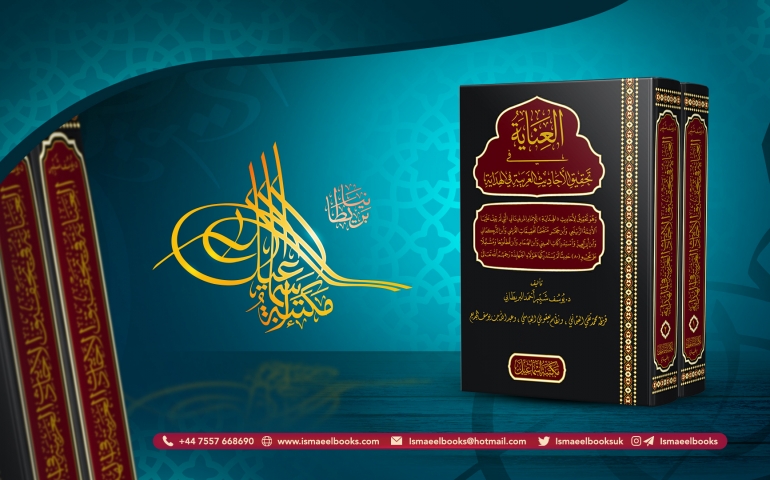
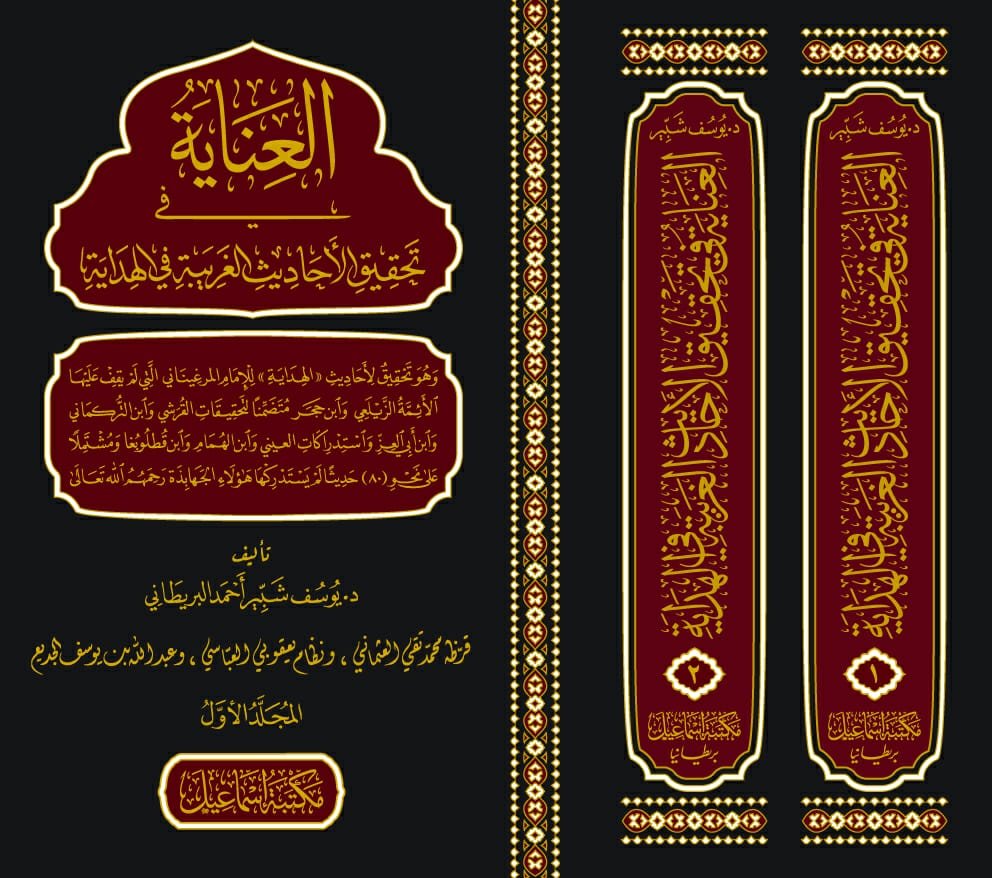
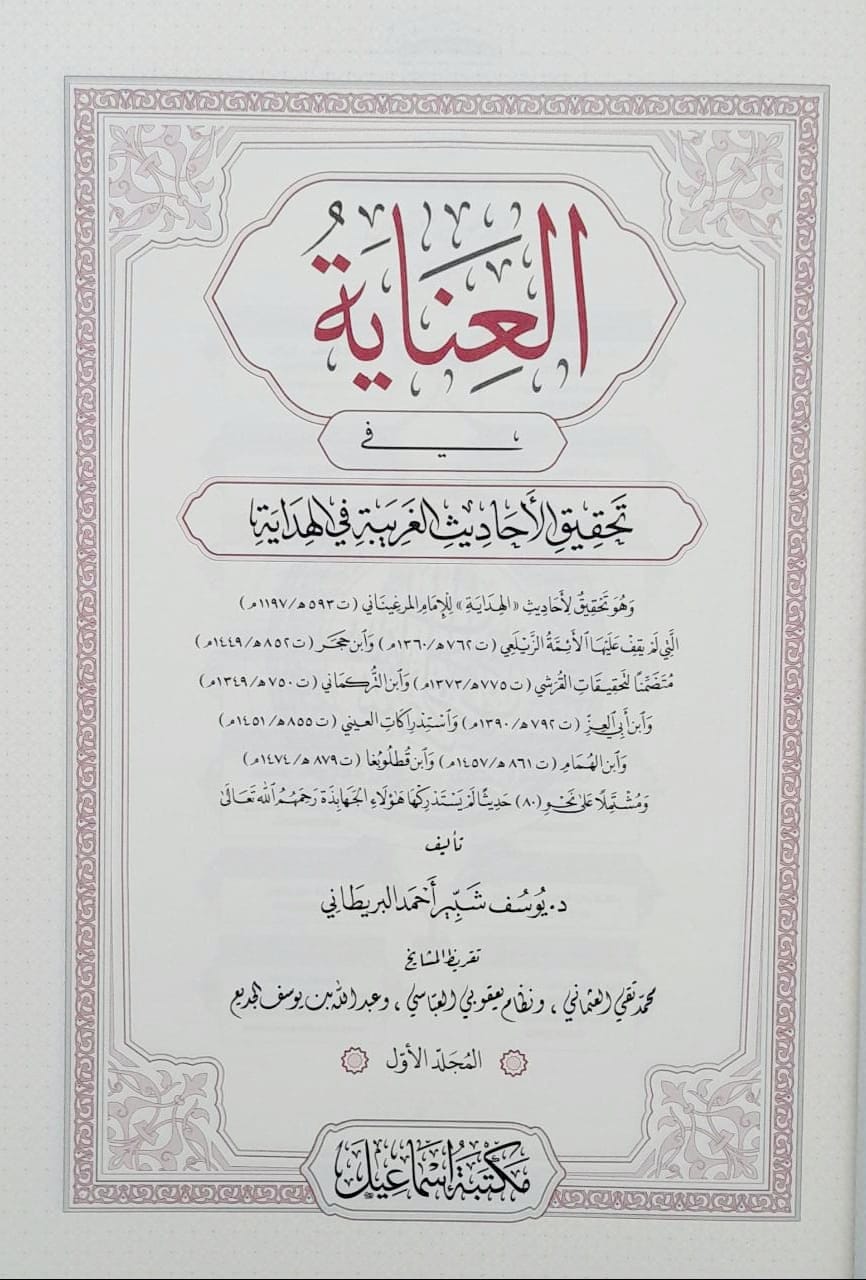
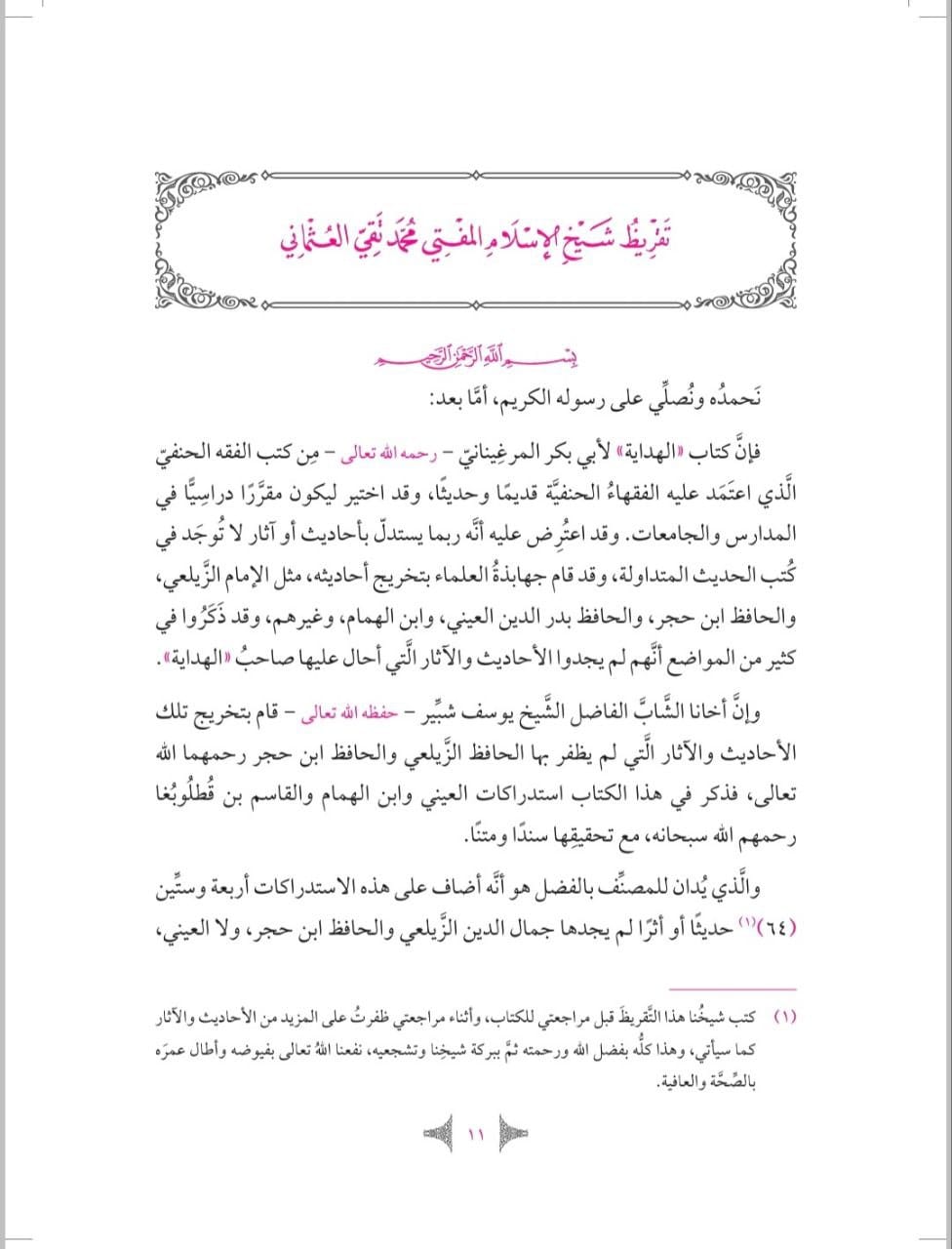
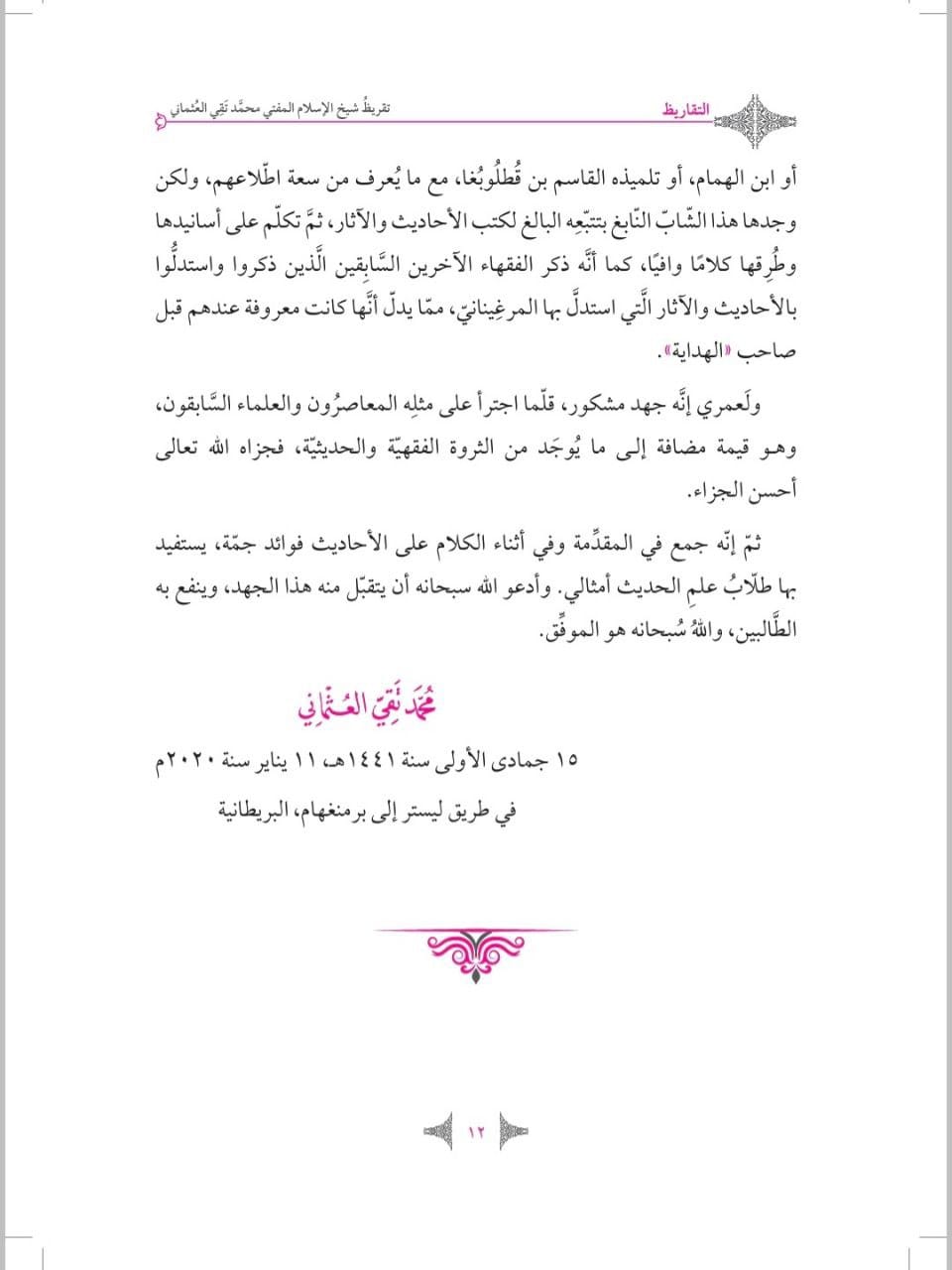
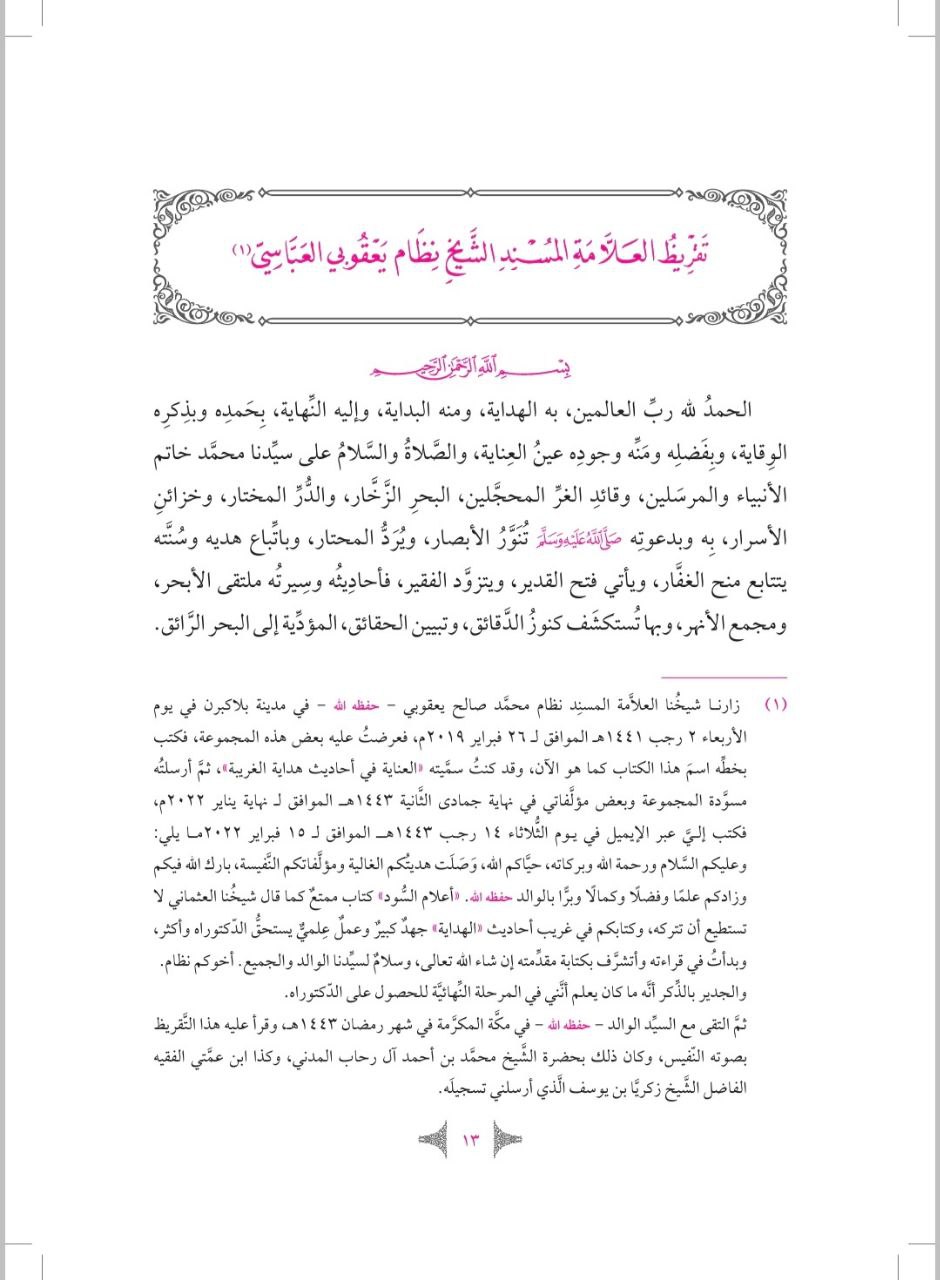
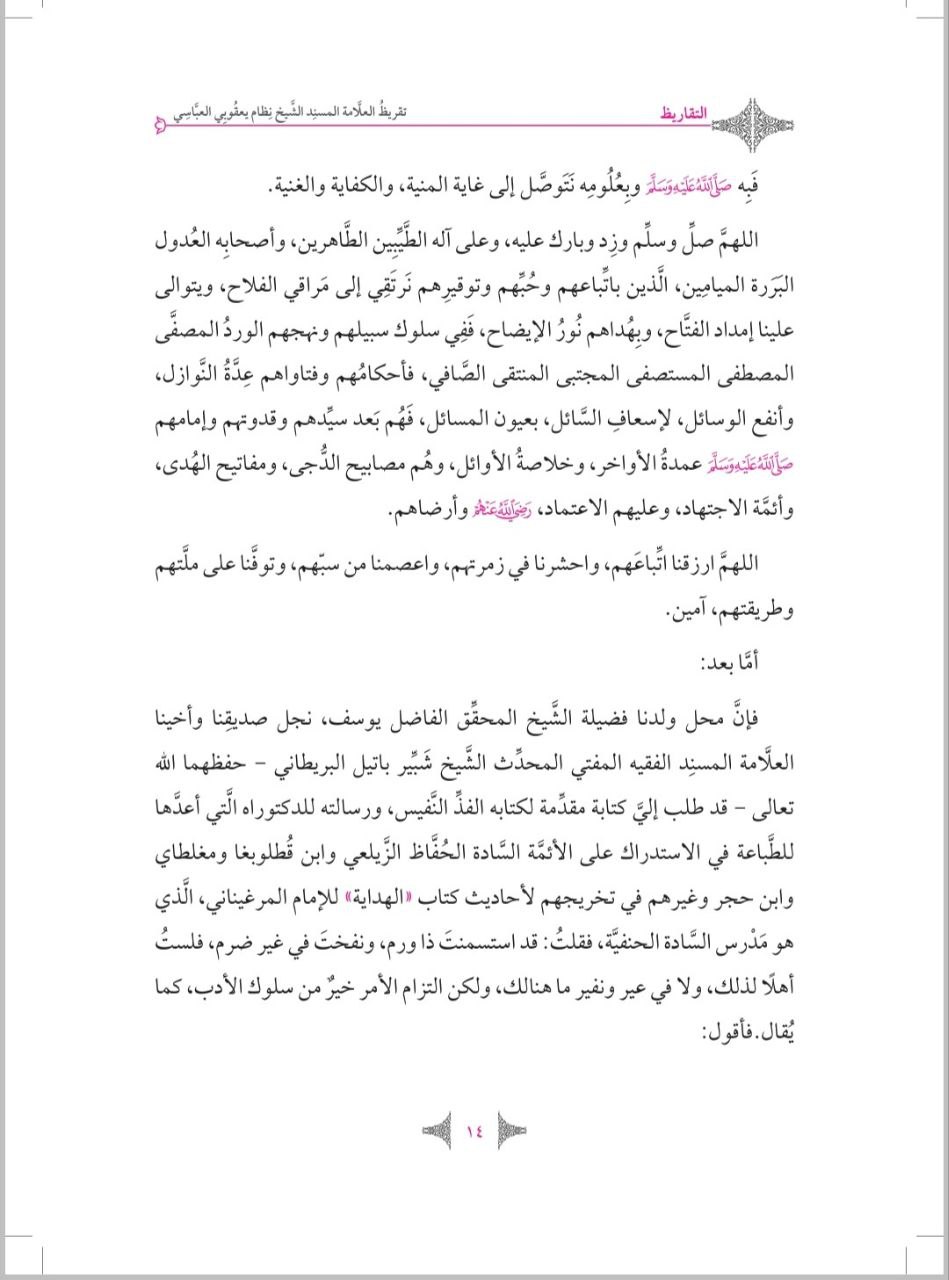
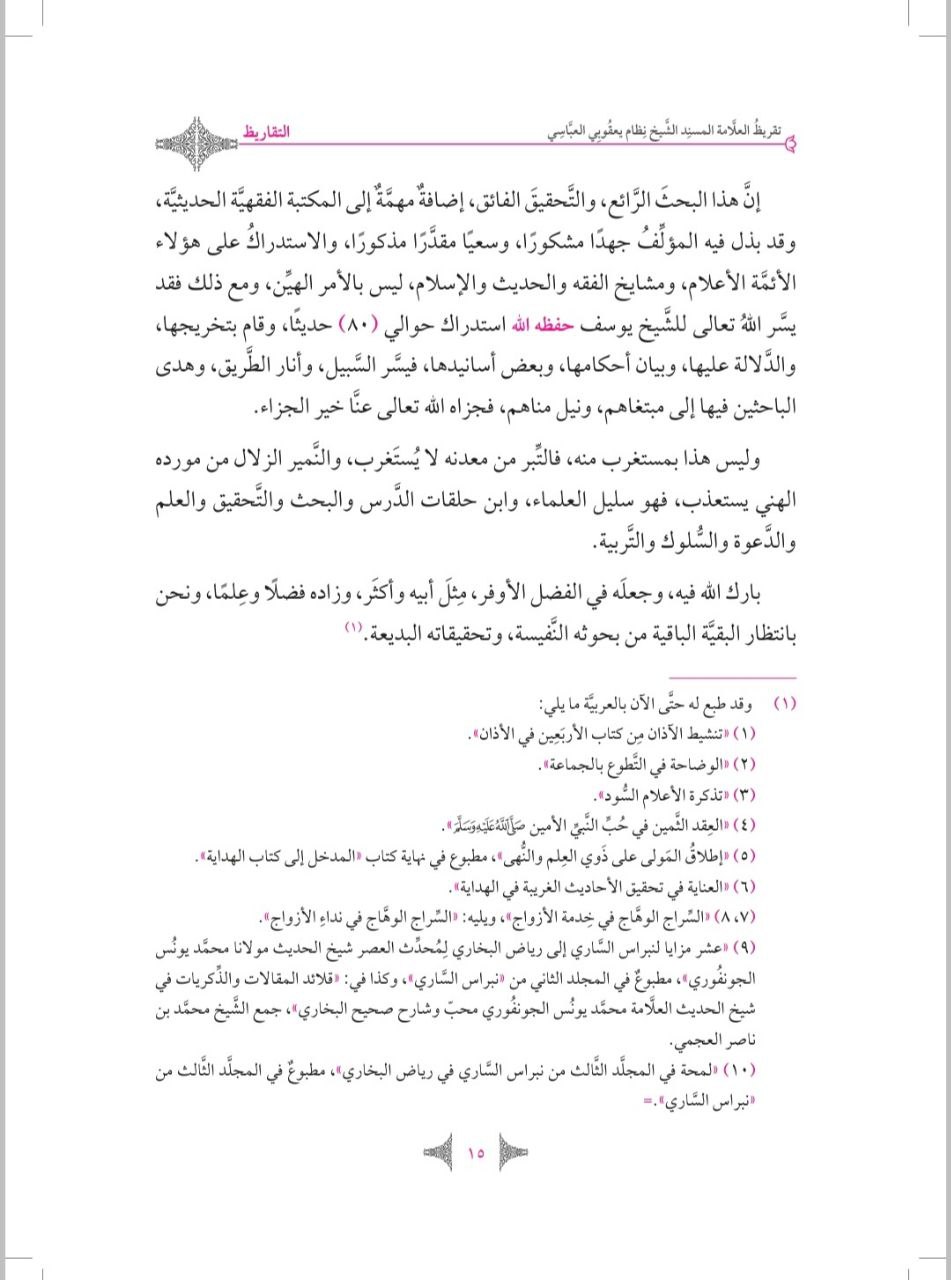
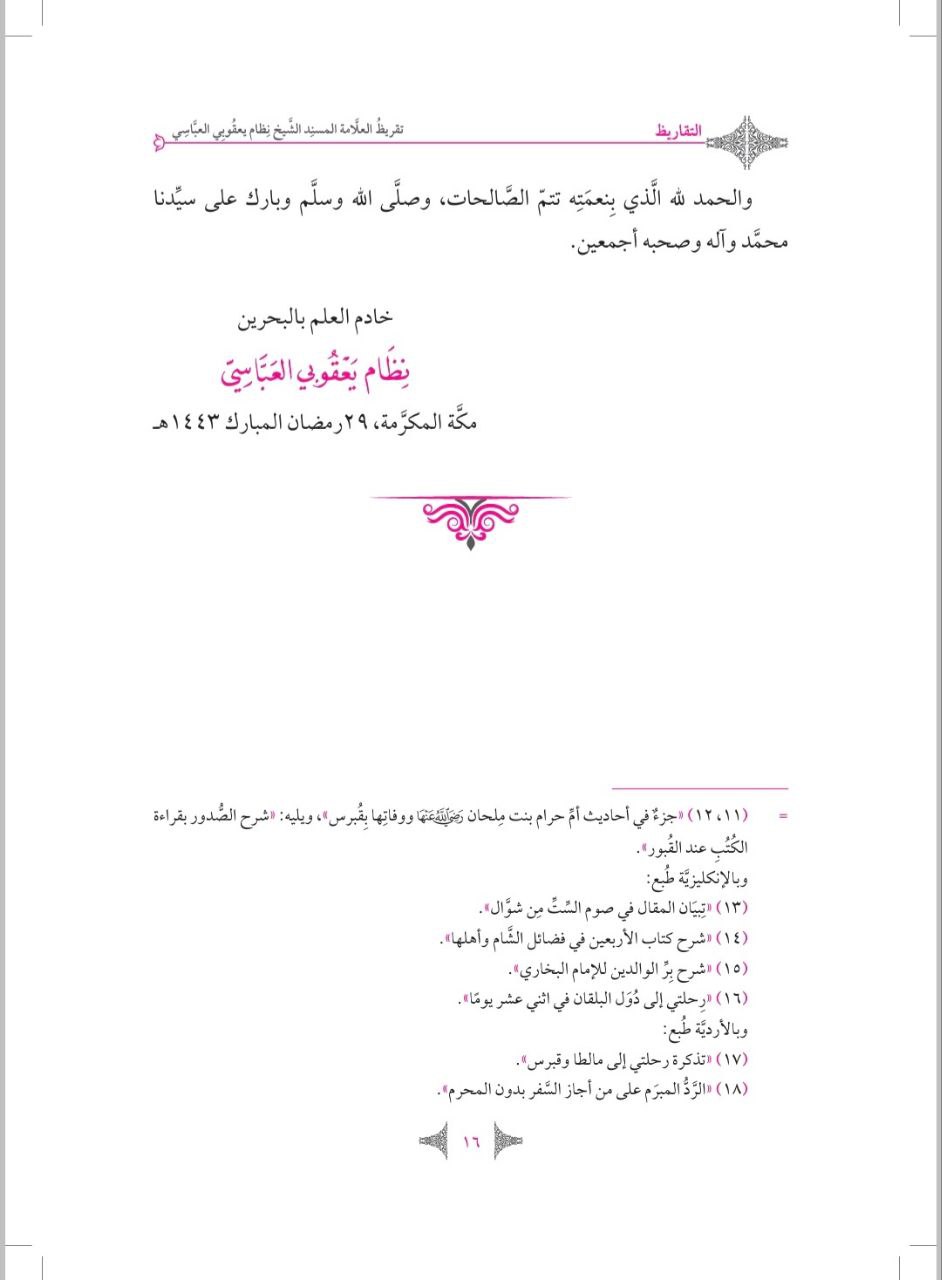
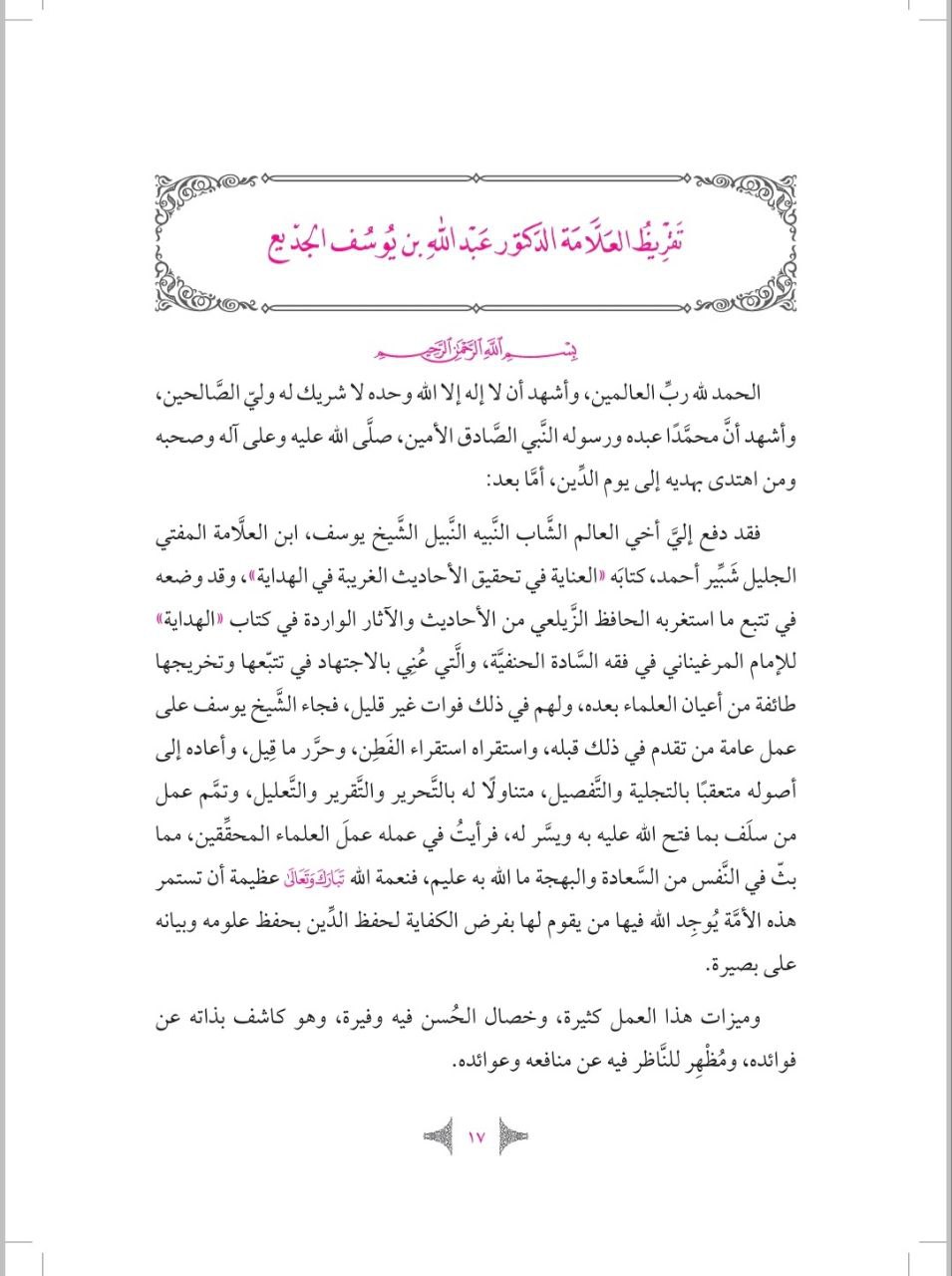

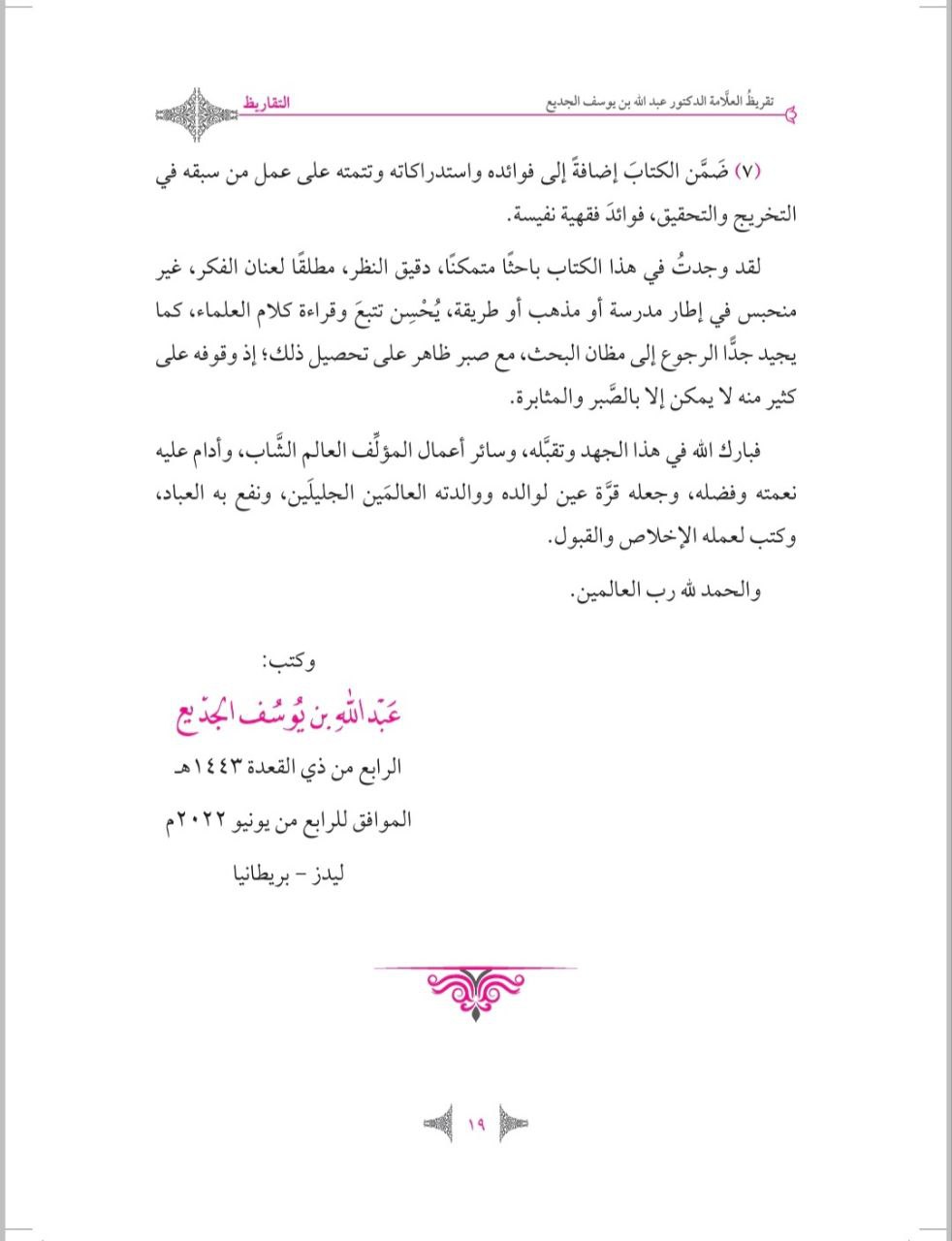
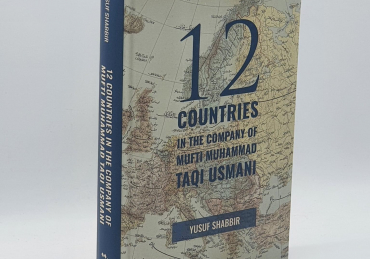


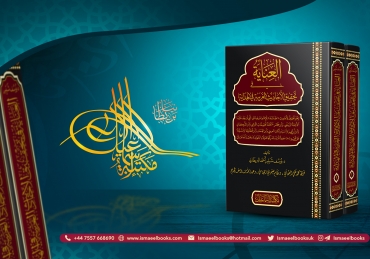

Explanation of a narration in Sahih Ibn Hibban